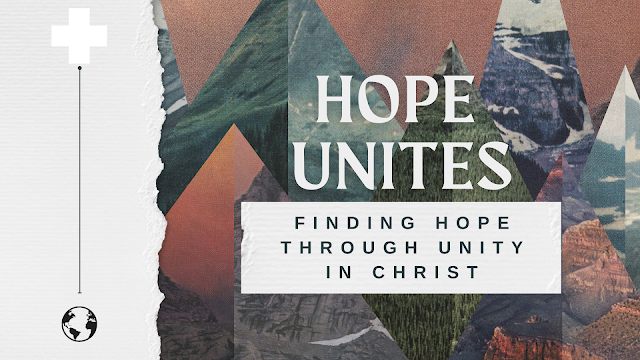Worth It | Why Investing In Others Matters

WORTH
IT
by Alex Hardt,
Associate Pastor to Youth and Young Adults
25One
day an expert in religious law stood up to test Jesus by asking him this
question: “Teacher, what should I do to inherit eternal life?” 26Jesus replied,
“What does the law of Moses say? How do you read it?”27The man answered, “‘You
must love the Lord your God with all your heart, all your soul, all your
strength, and all your mind.’ And, ‘Love your neighbor as yourself.’”
28“Right!” Jesus told him. “Do this and you will live!” 29The man wanted to
justify his actions, so he asked Jesus, “And who is my neighbor? –
Luke 10:25-29
DIVISION
No matter how you vote
or where your political affiliation falls, I am pretty sure you will agree: our
country feels divided. Left vs right, rich vs poor, young vs old, big business
vs people, and the division continues. The country feels more divided than ever
before, even my kids are feeling the division. There’s this air of angst
floating around us. It’s like we are all walking on eggshells waiting for the
next big thing to implode or explode. There is an uncertainty of what we can
say or shouldn’t say because we don’t know whether that will set them off.
Students anxiety are at an all-time high, depression is sky rocketing, and they
feel utterly overwhelmed. While there are a multitude of factors contributing
to these feelings, this sense of division is a major contributor.
I wonder if Jesus ever
dealt with such a situation or talked about a division among people?
BRIDGING
THE GAP
Pushed for clarity of
neighbor in Luke 10, Jesus tells a story of a Jewish man brutally beaten by
robbers during the treacherous journey from Jerusalem to Jericho. Those who
should have stopped for the man; a priest and a Levite; end up stepping over
him while the one who seemed least likely to stop, a Samaritan (Yup, the guy
who lived in a different area had different religious views, was from a
different economical background, and was utterly opposed to the man), takes
pity on him. The Samaritan dresses his wounds, likely using fragments of his
own attire to do so. The Samaritan doesn’t stop there, though he could, he
proceeds to pay out of his own wallet—for the beaten man to spend the night in
an inn. This generosity would have been notable for anyone. But it is particularly
prominent given the animosity between Jews and Samaritans. Dr. Martin Luther
King Jr. noted what enabled the Samaritan to cross the bridge of hatred and
show such compassion, “It seems to me that this [Samaritan] man’s goodness can
be described in one word: altruism (the dictionary defines
altruism as a regard for, and devotion to, the interest of others).
Indeed, the Samaritan was great because he made the first law of his life
not self-preservation, but other preservation.
OUR
DEFAULT
Let’s be honest, while
we love this story our natural default is self-preservation. I can think of
three times today that I put my own interest ahead of others (one of them being
the amount of times I paused for coffee instead of doing other things). And
teenagers are developmentally even more self-interested. Their whole life is
curated by social media and self-interest. But that doesn’t mean that churches
and families stop inviting teens to look beyond themselves and neighbors.
“According
to our data, teenagers and young adults are drawn to churches that challenge
them to give of themselves to others. While the path to neighboring
well is not always clear in such tumultuous times, teenagers and emerging
adults consistently described in interviews and focus groups how much they
care about their church’s process or journey for arriving at particular
beliefs, positions, and statements.” – Kara Powell
As followers of Christ,
we have an opportunity and obligation, by the Good Samaritan story standard, to
tell a different narrative. Our narrative is one of love, hope, and tells
individuals that they have worth. Are the differences between our rivaling
political parties great? Is there division in this world? And am I weeping over
what’s happening in our country these days? Yes, yes, and yes.
But
when we, or young people we know are tempted to go radio silent, lash out in
anger, or write off those who disagree with us, may we remember more of Dr.
King’s teachings about the neighborly example of the Good Samaritan: “The
ultimate measure of a [person] is not where they stand in moments of comfort
and moments of convenience, but where they stand in moments of challenge and
moments of controversy. The true neighbor is the [person] who will risk
his position, his prestige, and even his life for the welfare of others.” – Fuller Youth
Institute Blog
Is it Worth it? Yes! Do
young people need to see this kind of response? Yes! Is it difficult to do?
Absolutely! Am I there yet? Not even close, but I want to continue to learn how
to surrender my will and desire over to God so that I can help bring about
unity instead of division. I’m learning what it means to be “a Good Samaritan,”
will you come along with me?
Practically
Speaking | How might we invest well?
- Recognize
where we are living in a divisive world.
- Begin
with prayer, praying for those who feel divided and asking God to help
them overcome division.
- Dwell
in God’s word. How do we see Christ responding to division?
- It’s
more of a process than a position. Look for opportunities to create open
dialogue rather than closed doors.
- It’s
more about a posture than a proclamation. Are we
willing to give up our desire of being right? Self-preservation, for the
sake of God’s will being done?
- Practice
forbearance and forgiveness!! Read Col.3:12-14. What does it take to
preserve spiritual unity?
Resource
Fulleryouthinstitute.org


